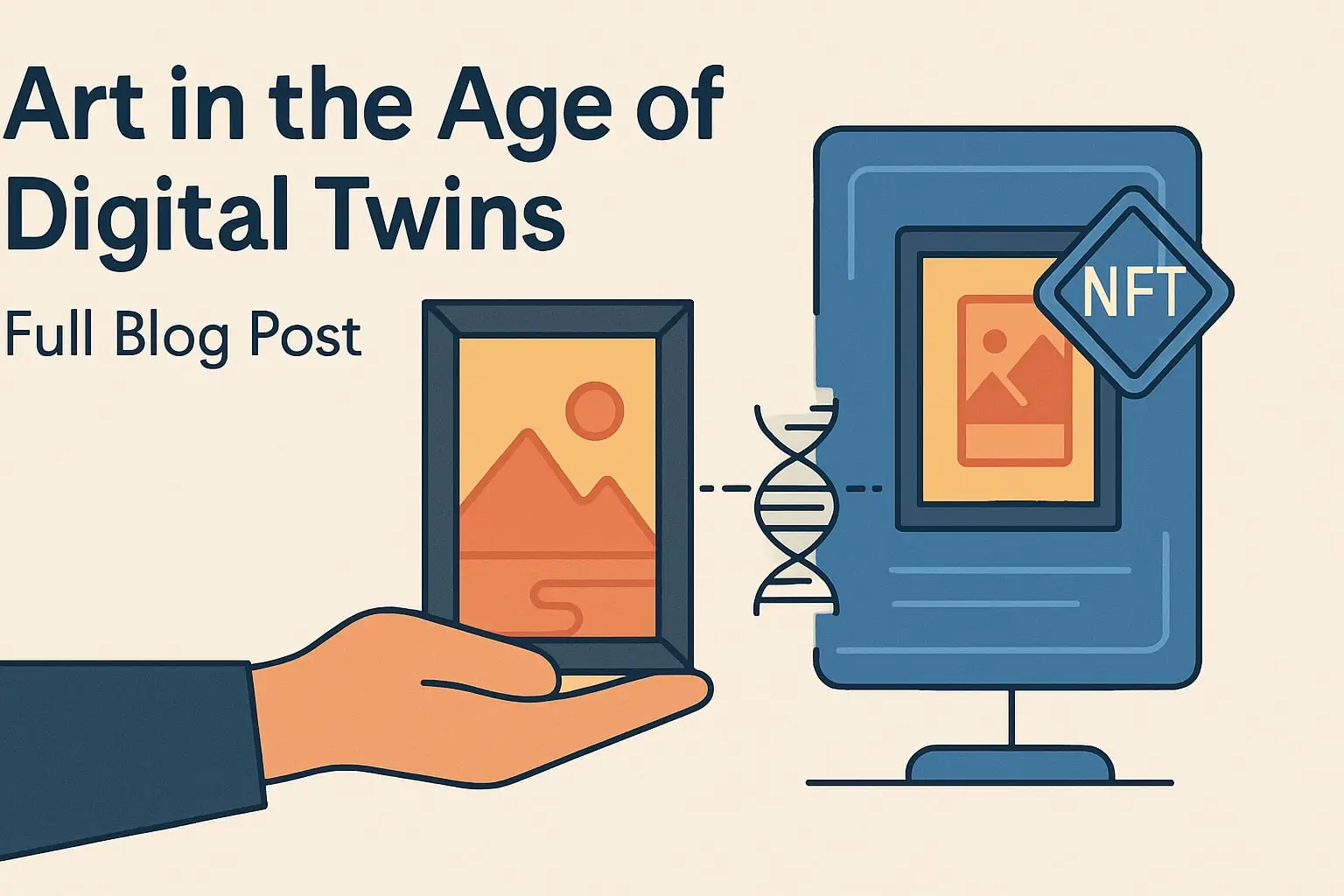What if every artwork in your collection had a digital twin — a secure, on-chain identity that verifies authenticity, tracks provenance, and enables new forms of ownership?
Welcome to the new era of collecting, where the physical and digital converge.
What Are Digital Twins for Art?
A digital twin is a verifiable, blockchain-based representation of a physical artwork. It acts as a trusted identity: confirming authenticity, tracking provenance, and enabling interactions in the digital realm.
At Digital Téchne, we generate these twins using NFT technology, immutably linking them to the original through a genomic seal — a biological signature that ensures integrity and tamper-proof connection.
But this isn’t just a smarter certificate. It’s a gateway to dynamic, programmable ownership.
Why Digital Twins Matter for the Art World
Digital twins unlock a new level of trust, liquidity, and creative potential for the art ecosystem. Here’s what they enable:
- Secure digital documentation
Authenticity, condition, and ownership verified on-chain. - Simplified transfer and resale
Seamless transactions across digital marketplaces. - Fractional ownership
Share or tokenize valuable works for investment or collective ownership. - Global digital exposure
Feature art in Web3 platforms, metaverse galleries, and curated digital spaces. - Transparent provenance records
A living, unalterable archive of an artwork’s journey.
Enhancing, Not Replacing, the Physical
Digital twins don’t compete with the original — they enhance it.
- Artists can encode permanence and resale logic into their works.
- Collectors gain fluidity, trust, and visibility.
- Museums can engage new audiences digitally while preserving physical integrity.
This model bridges the traditional and the innovative — allowing art to live simultaneously in the gallery and on the chain.
Future-Proofing the Art Object
As cultural and economic life moves deeper into the digital space, digital twins are becoming essential infrastructure.
They safeguard the value and history of artworks while unlocking entirely new models of engagement, trade, and ownership.
In the age of digital twins, art doesn’t just hang on walls — it travels, evolves, and connects.


